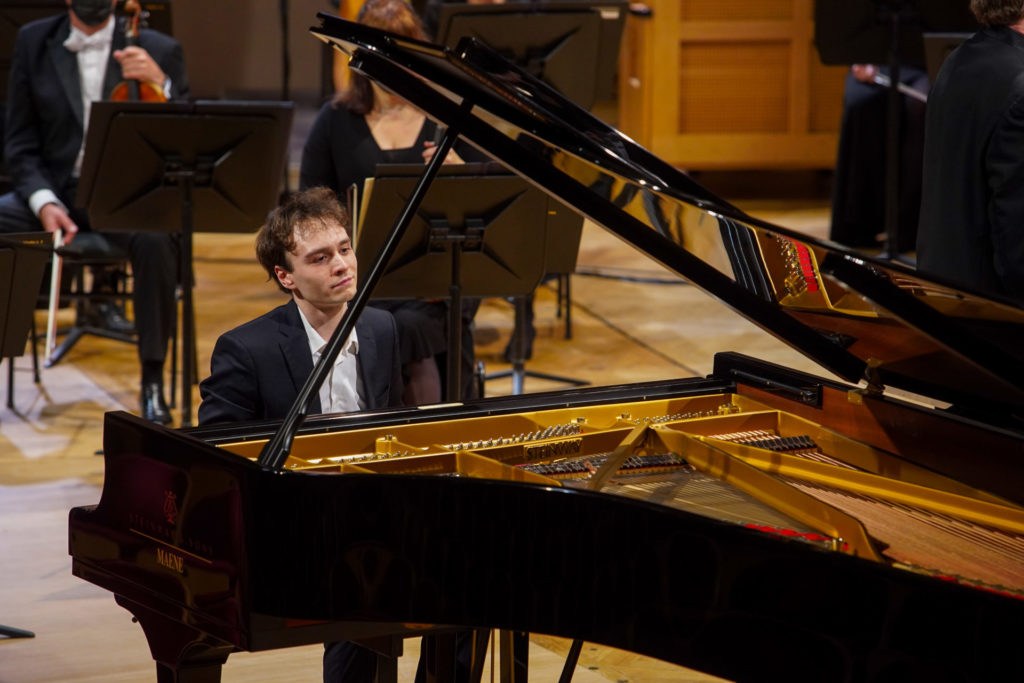The young French candidate Jonathan Fournel (27) has been awarded first prize in this year’s Queen Elisabeth Music Competition, this year devoted to the piano.
The competition was taking place exceptionally this year without an audience, with only the judges present in the hall and, when required, the musicians onstage. The public could only be present virtually, with live relays of performances on TV and radio, as well as on-demand online.
The piano competition was postponed from last year, when it was cancelled due to the pandemic, which had made preparation of alternative concerts impossible, but had also affected the ability of the young musicians to travel to Brussels to take part.
This year’s field of candidates was cut down this year, to 64 in all, 53 men and 11 women. Overall, 19 nationalities were represented, none of them Belgian.
There were 12 semi-finalists instead of 24 in a normal year, and six finalists.
Each finalist plays a concerto with full orchestra, as well as an imposed work by a modern composer, in this case Bruno Mantovani. To allow the best possible distancing for the orchestra musicians, the stage at the Palais des Beaux Arts was extended forward.
For his performance, the last in the current competition, Fournel opted for the Brahms concerto No. 2 in B flat major.
According to Le Soir’s critic, the winning competitor completed his parcours through the competition with “brio, beauty and finesse”. The French candidate, she writes, “seduced by his solidity, his character, his gentleness and his mastery.”
Related News
- Queen Elisabeth Competition plays to empty rooms
- Six Queen Elisabeth Competition finalists announced
The prize, named for Queen Mathilde since she took over the patronage from the late Queen Fabiola, carries a cash element of €20,000.
As a result of the change in schedules last year and this, the cello competition planned for 2021 – only the second in the competition’s history – will now take place next year. In order not to disadvantage applicants, the maximum age of 30 has been advanced by one year, the Competition organisers said.
The Queen Elisabeth Music Competition was set up at the initiative of Eugène Ysaÿe, a Belgian virtuoso violinist and conductor, in 1937 for violin, and the following year for piano. The competition then went dark during the war and until 1950.
In 1951, Ysaÿe took his own name off the marquee and named the competition after his patroness, Queen Elisabeth, wife of King Albert I.
The recurring versions of violin and piano continued until 1988, when a competition for singing was added to the roster. In 2017, the cello competition was created.
The other five finalists were: Sergei Redkin (Russia); Keigo Mukawa (Japan); Tomoki Sakata (Japan); Vitaly Starikov (Russia); Dmitry Sin (Russia).
Details of the upcoming concerts by the finalists, as well as online content, from the Competition website.

